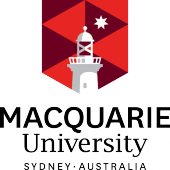Full description
The four video clips in this dataset supplement the peer-reviewed paper Possemato et al. (2021). Using a geospatial approach to document and analyse locational points in face-to-face conversation, which is published in the open-access journal Language Documentation and Description. Please refer to the article for transcriptions and contextual information regarding the extracts.
The methodology paper presents a geospatial framework for the documentation and analysis of locational points in casual interaction. It demonstrates how GPS and GIS metadata can be used in conjunction with satellite imagery to accurately determine the direction of locational pointing gestures in video-recorded interactions. The illustrative extracts involve research participants from remote regions in Australia. Ethics approval has been obtained by Macquarie University and participants have given fully informed consent.
The supplementary files in this dataset have been downsized and converted to MP4 format. The larger corpora for the Aboriginal Australian languages will be archived at the Australian Institute of Aboriginal and Torres Strait Islander Studies (AIATSIS). The repository for the corpus of conversation in English spoken in remote and rural Australia is yet to be determined.
Issued: 2021-12-24
Created: 2021-12-24
User Contributed Tags
Login to tag this record with meaningful keywords to make it easier to discover
- DOI : 10.25949/17211686.V1



